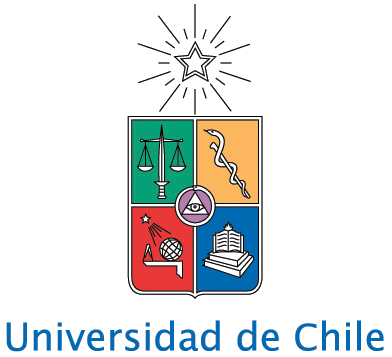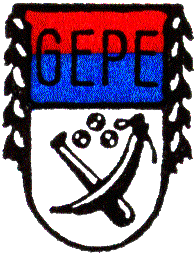LECTURE 12 GASTROINTESTINAL AGENTS CHAPTERS 41 &
111 DERIVING DYNAMIC PROGRAMMING ADVANCED MATH THIS LECTURE REALLY13 ALLAN MACRAE JEREMIAH LECTURE 2 © 2013 DR
13 FRIDAY ALL NIGHT SERVICE TITLE LECTURE ON GENESIS
2 ECON4925 LECTURE PLAN LECTURE PLAN ECON4925 2006 (REV1)
2 LECTURE USE OF COHERENCE OF LASER LIGHT PHOTON
20 ALL OF LIFE IS A PROJECTION LECTURE BY
Lecture 12
Lecture 12
Gastrointestinal Agents
Chapters 41 & 42
GI Agents
GI tract = Oral cavity of mouth, esophagus, stomach, sm. intestine (duodenum, jejunum, ilium), lg. intestine (cecum, colon, rectum), & anus
Accessory organs contributing to the digestive process = Salivary glands, pancreas, gallbladder, liver
Main function = Digestion of food particles & absorption of digestive contents (nutrients, electrolytes, minerals, & fluids) - into circulatory system for cellular use
Undigested material passes through the lower intestinal tract w/ aid of peristalsis to rectum & anus - excreted as feces or stool
GI
Agents
Vomiting - Antiemetics
Vomiting = the expulsion of gastric contents Before treating, the cause of the vomiting needs to be identified
Causes are many: motion sickness, viral & bacterial infection, food intolerance, surgery, PG, pain, shock, effects of some drugs, radiation, & disturbances of the middle ear affection equilibrium.
Antiemetics can mask the cause & should not be used until cause is determined, unless vomiting is severe enough to cause dehydration & electrolyte imbalance
GI
Agents
Vomiting - Antiemetics
Nonpharm Rx= weak tea, flattened carbonated drinks, Gatorade & pedialyte (children), crackers dried toast
Nonprescription antiemetics = used to prevent motion sickness - minimal effect on severe vomiting from anticancer agents, radiation, and toxins.
- take 30 min. before traveling
Dimenhydrinate (dramamine), meclizine HCL (Antivert), diphenhydramine HCL (Benadryl)
- SE = drowsiness, dryness of mouth, constipation
GI Agents-Antiemetics
Prescription Antiemetics - eight categories:
1 & 2. Antihistamines & Anticholinergics - Hydroxyzine (Vistaril, Atarax), Promethazine (Phenergan), Scopolamine (Transderm Scop) - Act primarily on the vomiting center, dec. stimulation of CTZ
- SE = drowsiness, dry mouth, blurred vision (pupil dilation), tachycardia (anticholinergics), constipation
- Do not use in clients w/ glaucoma d/t dilation of pupils
GI Agents - Antiemetics
Phenothiazine - largest group of drugs used for N & V
Chlorpromazine (Thorazine), prochlorperazine edisylate (Compazine) - most frequently prescribed, perphenazine (Trilafon) - frequently used w/ anticancer therapy
- Action - inhibits dopamine in the CTZ thus dec. CTZ stimulation of the vomiting center
- Use - severe N & V from sugery, anesthetics, chemo & radiation sickness
- SE = dry mouth, drowsiness, EPS, dizziness, hypotension
GI
Agents
Antiemetics
Butyrophenones - Haloperidol (Haldol), droperidol (Inapsine) - block dopamine-2 receptors in the CTZ
- Use - Rx of post-op N & V & emesis associated w/ toxins, chemo & radiation therapy
- SE - EPS if used over extended time, hypotension
Metoclopramide - metoclopramide (Reglan) - blocks dopamine & serotonin receptors in the CTZ
- Use = post-op emesis, chemo & radiation therapy
- SE = sedation & diarrhea w/ high doses
GI
Agents
Antiemetics
4. Benzodiazepines - Lorazepam (Ativan) - for N & V d/t chemo - May be given w/ an antiemetic such as metoclopramide (Reglan)
5. Serotonin Antagonists - ondansetron (Zofran), granisetron (Kytril) -
- Action - suppress N & V by blocking the serotonin receptors in the CTZ & afferent vagal nerve terminals in upper GI tract - Do not cause EPS symptoms
- Use - chemo induce emesis - PO & IV
- SE - headache, diarrhea, dizziness, fatigue
GI Agents - Antiemetics
6. Glucocorticoids - Dexamethasone (Decadron), methylprednisolone (Solu-Medrol) - effective w/ chemo treatment in suppressing emesis - given IV
7. Cannabinoids - active ingredient in marijuana - approved for clinical use since 1985 to alleviate N & V from cancer treatments - dronabinol (Marinol), nabilone (Cesamet)
- for clients unable to use or respond to other antiemetics
- SE = mood changes, euphoria, drowsiness, nightmares, dry mouth, confusion, HA, depersonalization, nightmares, incoordination, memory lapse, orthostasis, hypertension & tachycardia
GI
Agents
Antiemetics/Emetics
8. Miscellaneous - Benzquinamide HCL (Emete-Con), diphenidol (Vontrol), trimethobenzamide (Tigan) - suppress the impulses to the CTZ, Vontrol also prevents vertigo by inhibiting impulses to the vestibular area
- labeled misc. because they don’t act strictly as antihistamines, anticholinergics, or phenothiazides
- SE = drowsiness, anticholinergic symptoms, CNS stimulation, EPS
GI Agents - Emetics
GI
Diarrhea = frequent liquid stool d/t an intestinal disorder
- causes: foods, fecal impaction, bacteria, virus, drug rxn, laxative abuse, malabsorption syndrome, stress, bowel tumor, inflammatory bowel disease
- can be mild to severe - ID underlying causes first
- can cause minor or severe dehydration & electrolyte imbalance
- can be life threatening to the young & elderly
Nonpharm Rx = clear liquids & oral soln’s (gatorade, pedialyte), IV electrolyte soln’s….. (BRAT diet)
GI Agents - Antidiarrheals
Used to decrease hypermotility (inc. peristalsis cause of diarrhea - needs to be corrected) Do not use longer that 2 days & not use with fever. Underlying cause must be found. (Ex. E. Coli)
4 categories (Opiates, opiate related agents, adsorbents antidiarrheal combos)
Opiates - decrease intestinal motility thus dec. peristalsis
tincture of opium, paregoric, codeine - in combo w/ other agents
SE = CNS depression ( taken with ETOH, sedatives or tranqs), constipation Duration = 2 hrs.
Opiate-Related Agents - Diphenoxylate (Lomotil), loperamide (Imodium) - synthetic drugs chemically related to meperidine
- Action - decrease intestinal motility - “travelers diarrhea”
- SE = N & V, drowsiness, abd. Distention
GI Agents - Antidiarrheals
GI
Agents
Constipation
Constipation - accumulation of hard fecal material in the large intestine - a major problem of the elderly
- Causes - poor H2O intake & poor dietary habits, ignoring the urge, fecal impaction, bowel obstruction, chronic laxative use, neurologic disorders (paraplegia), lack of exercise, selected drugs (anticholinergics, narcotics & certain antacids)
Nonpharm Rx = diet that contains fiber, water, exercise, routine bowel habits (normal can be 1-3/day or 3/wk – varies from person to person) The freq. is secondary to consistency – feces hard & dry
GI Agents - Constipation
GI Agents -Laxatives
Osmotic Laxatives (Hyperosmolar laxatives) - include salts or saline products, lactulose, & glycerine
Lactulose (Cephulac), Magnesium hydroxide (MOM), sodium biphosphate (Fleet Phospho-Soda), Fleet enema
Action – These poorly absorbed salts osmotic action draws water into the intestine, inc. H20 causes fecal mass to soften and swell stretches intestine & stimulate peristalses.
Saline preps contains NA+, Mg+, a small amt. may be systemically absorbed so CI in poor renal function
GI Agents - Laxatives
Osmotic laxatives contain 3 electrolytes (NA+, MG+, K+) Used in bowel prep for dx & surg. procedures
Polyethylene glycol (PEG) or (GoLytely) – non absorbable osmotic substance, so can be used by clients with renal impair or cardiac probs, PO 3 to 4 liters over 3 hours for bowel prep.
Lactulose (saline lax) draws H2O into the intestines
- SE = flatulence, diarrhea, abd. cramping, N & V
CI: Clients w/ CHF, w/ renal insufficiency should avoid magnesium salts, in some laxatives (Milk of Mag)
Electrolytes should be monitored.
GI
Agents
Laxatives
Stimulant (Contact) Laxatives - Increase peristalsis by irritating sensory nerve endings in the intestinal mucosa
phenolphytalein (Ex-Lax), biscadyl (Dulcolax), senna (Senokot), castor oil (purgative)
- Biscadyl & phenolpythalein are two of the most frequently used & abused laxatives - OTC
- Castor Oil = harsh laxative that acts on the small bowel & produces a watery stool
- SE = Nausea, abd. cramps, weakness, Fluid & electrolyte imbalances w/ chronic use
GI Agents - Laxatives
Bulk-Forming Laxatives - Calcium polycarbophil (FiberCon), methylcellulose (Citrucel), psyllium hydrophilic mucilloid (Metamucil)
- Natural fibrous substances that promote lg. soft stools by absorbing water into the intestine - inc. fecal bulk & peristalsis
- Does not cause laxative dependence & may be used by clients w/ diverticulosis, irritable bowel syndrome & ileostomy & colostomy
- Powders mixed w/ H2O or juice, drink immediately, followed by a full glass
GI Agents - Laxatives
Emollients (Surfactants) - Docusate calcium (Surfak), docusate potassium (Dialose), docusate sodium (Colace), docusate sodium w/ casanthranol (Peri-Colace) - Stool softeners (surface acting drugs) and lubricants used to prevent constipation - dec. straining during defecation
- Action - lowers surface tension & promotes H2O accumulation in the intestine and stool
- Use - after an MI, post-op
- SE - N & V, diarrhea, cramping
GI
Agents
Antiulcer
Drugs
Peptic Ulcer - a broad term for an ulcer occurring in the esophagus, stomach, or duodenum w/in the upper GI tract (esophageal, gastric & duodenal ulcers).
Ulcers develop when there is an imbalance between mucosal defensive factors & aggressive factors. Maj. defensive factors are mucus & bicarb. (Keep stomach & duodenun from self–digestion) Major aggressive - H. pylori, NSAID, gastric acid, & pepsin
Duodenal ulcers 10X more frequent than gastric, esophageal
Release of hydrochloric acid (HCL) from the parietal cells of the stomach influenced by histamine, gastrin & acetylcholine - Peptic ulcers caused by hypersecretion of HCL & pepsin, erode the GI mucosal lining
GI
Agents
Antiulcer
Drugs
Gastric secretions of the stomach strive to keep
a pH of 2 to 5 Pepsin-a digestive enzyme is activated at a pH of 2, the acid-pepsin complex of gastric secretions can cause mucosal damage
- If the pH inc. to 5 - the activity of pepsin declines
Gastric Mucusal Barrier (GMB) - thick, viscous, mucous material that provides a barrier between the mucosal lining & the acidic gastric secretions - defense against corrosive substances, maintains integrity of the gastric mucosal lining
GI Agents - Antiulcer Drugs
Two sphincter muscles:
- Cardiac - located at the upper portion of the stomach - prevents reflux of acid into the esophagus
- pyloric - located at the lower portion of the stomach - prevents reflux of acid into the duodenum
* Esophageal ulcers reflux of acidic gastric secretion into the esophagus d/t a defective or incompetent cardiac sphincter
* Duodenal ulcers hypersecretion of acid from the stomach that passes to the duodenum
* Gastric ulcer breakdown of GMB (gastric mucosal barrier)
GI Agents - Antiulcer Drugs
Predisposing factors - mechanical disturbances, genetic, bacterial organisms, environmental, drugs - Nurse needs to help identify & teach ways to avoid
Symptoms = gnawing, aching pain
- gastric = 30 min. – 1 1/2 h after eating
- duodenal - 2 - 3 h after eating
Stress ulcer usually follows a critical situation - trauma, major surgery - prophylactic use of antiulcer drugs dec. the incidence of stress ulcers
GI Agents - Antiulcer Drugs
Helicobacter pylori (H. pylori) - a gram (-) bacillus linked w/ the development of peptic ulcer
- H. pylori known to cause gastritis, gastric ulcer & duodenal ulcer –When a peptic ulcer recurs after anti-ulcer tx and it’s not caused by NSAIDS such as ASA or Ibuprofen client should be tested for H. pylori
GI Agents – Antiulcer
GI Agents - Antiulcer Drugs
Gastroesophageal reflux Disease (GERD) - 40 to 45% of adults have heartburn in many cases d/t GERD
- Inflammation of the esophageal mucosa caused by reflux of gastric acid content into the lower esophageal sphincter
- Rx similar to treatment of peptic ulcers - the use of common antiulcer drugs to neutralize gastric contents & reduce acid secretion
- A chronic disorder requiring continuous management & education
GI
Agents
Antiulcer
Drugs
Nonpharm Rx = avoiding smoking & ETOH can dec. gastric secretions, wt. loss (obesity enhances GERD), avoid hot, spicy, greasy foods, Take NSAIDs w/food, do not eat before bedtime
Pharmacologic Rx = there are 8 groups of antiulcer agents
1. Tranquilizers - minimal effect in preventing & treating ulcers. Reduce vagal stimulation & dec. anxiety
Librax - combo of anxiolytic chlordiazepoxide (Librium) & the anticholinergic clidinium (Quarzan) used in the treatment of ulcers
GI
Agents
Antiulcer
Drugs
2. Anticholinergics - Not used as much w/ the newer drugs on board. Relieve pain by dec. GI motility & secretion
3. Antacids - Promote ulcer healing by neutralizing HCL & reducing pepsin activity; they do not coat the ulcer, Two types: Systemic or non systemic
Calcium carbonate (Tums)- Systemically absorbed antacid - neutralizes acid, however, 1/3 to 1/2 of drug systemically absorbed & causes acid rebound. Hypercalcemia can result from excess use
Sodium bicarb.- systemically absorbed many SE = hypernatremia, water retention are a few
GI
Agents
Antiulcer
Drugs
Nonsystemic antacids composed of alkaline salts - aluminum (aluminum hydroxide - Amphojel) and magnesium (magnesium hydroxide - Maalox, Mylanta)
- The combo of magnesium & aluminum neutralizes gastric acid w/o causing constipation or severe diarrhea
- aluminum itself causes constipation & magnesium alone can cause diarrhea
- Ideal dosing is 1 and 3 h after meals
GI
Agents
Antiulcer
Drugs
4. Histamine -2 Blockers (H2) or histamine-2 receptor antagonists - most popular drugs used to treat ulcers
- Action - Block the H2 receptors of the parietal cells in the stomach, thus reducing gastric acid secretion & concentration to promote healing
Cimetidine (Tagamet), Famotidine (Pepcid), Nizatidine (Axid), ranitidine (Zantac)
- Tagamet = first H2 blocker - Need good kidney function, 50-80% of drug excreted unchanged in the urine
do not give w/ antacids - dec. effectiveness of drug
GI Agents - Antiulcer Drugs
- Zantac, Pepid, & Axid = more potent – in addition to blocking of gastric secretion they also promote healing of the ulcer by eliminating its cause.
- Duration of action longer & fewer side effects
- Use - to treat gastric & duodenal ulcers & can be used prophylactically
also useful in relieving symptoms of reflux esophagitis, preventing stress ulcers post-op
- SE = headaches, dizziness, constipation, rash
- DI = many w/ cimetidine - check carefully
GI
Agents
Antiulcer
Drugs
5. Proton Pump Inhibitors (gastric acid secretion inhibitors, gastric acid pump inhibitors (PPIs) - suppress gastric acid secretion by inhibiting the hydrogen / potassium ATP-ase enzyme system located in the gastric parietal cells, they tend to inhibit gastric acid secretion up to 90% greater than the H2 blockers - these agents block the final step of acid production
Omeprazole (Prilosec), lansoprazole (Prevacid) - Used for Rx of peptic ulcers & GERD - highly protein-bound
SE = headache, dizziness, diarrhea, abd. pain, rash
* Monitor liver enzymes
GI
Agents
Antiulcer
Drugs
6. Pepsin Inhibitor - Sucralfate (Carafate) - a mucosal protective drug. Nonabsorbable & combines w/ protein to form a viscous substance that covers the ulcer and protects it from acid & pepsin - does not neutralize acid or dec. acid secretions
- SE - few because not systemically absorbed, but may cause nausea & constipation
7. Prostaglandin analogue antiulcer drug - Misoprostol (Cytotec) - New for prevention & Rx of peptic ulcers
GI Agents - Antiulcer Drugs
- Action - It appears to suppress gastric acid secretion & inc. cytoprotective mucus in the GI tract. Causes a mod. dec. in pepsin secretion
- Use - gastric distress from taking NSAIDs, ASA & indomethacin that are prescribed for long-term therapy
- CI - during pregnancy & for women of child bearing yrs.
8. GI stimulants - Cisapride (Propulsid) - increases gastric emptying time preventing acid reflux - used for nocturnal heartburn & GERD
CI - cardiac dysrhythmias, heat disease, CHF - an ECG should be done before & during therapy, renal & resp. failure
2002 FRESHFIELDS LECTURE 19 ARB INT’L 279 (2003) ARBITRATION’S
3 TEST QUESTIONS – BIT LECTURE 1 OBJECTIVES AND
3012 FUNDAMENTALS OF MATERIALS SCIENCE FALL 2003 LECTURE 10
Tags: agents -----------------------, gi agents, chapters, lecture, agents, gastrointestinal
- Ðïࡱáþÿ ¥áà ð¿ï Bjbjoo 4aa¥)ÿÿÿÿÿÿ·þ þ Xxxxxÿÿÿÿlll8¤àlçþôôôôô¯¯¯fhhhhhhå²w2ölx¯¯¯¯¯lxxôôûx81½½½¯rxôxôf½¯f½½æ)x90´ôÿÿÿÿðx85x87ûàªðÿÿÿÿ^´)2x970çè)ìm3^m3(´´bm3xö¯¯½¯¯�
- WOODLAND VIEW JUNIOR SCHOOL POLICY STATEMENT FOR MATHEMATICS REVIEWED
- REQUEST FOR COMPRESSED WORK SCHEDULE THE FOLLOWING CONDITIONS GOVERN
- REGULAMIN ORGANIZACYJNY KRAJOWEJ SZKOŁY SĄDOWNICTWA I PROKURATURY (TEKST JEDNOLITY)
- CUERPO DE PROFESORES DE ENSEÑANZA SECUNDARIA FASE DE PRÁCTICAS
- Ðïࡱáþÿ x97x99þÿÿÿx95¥áà Ø¿3bjbj[ê[ê 49 9 Ÿÿÿÿÿÿ·`````ÿÿÿÿttt8¬dðtx900à²r|5`5``ûj½½½â``½½½÷cÿÿÿÿ੯øõòÿÿÿÿûjû`0x90îeöîcî`c¸½55x82 & Curso Monográfico
- ALOJAMIENTO EN MADRID HOSTALES PUEDES ALOJARTE EN ALGUNO DE
- IZENEMATE ORRIAHOJA DE INSCRIPCIÓN IZENEMATE ORRIA BIDALI ENVIAR LA
- Ðïࡱáþÿ ¼¾þÿÿÿº»¥á[x80 пêbjbj¬ú¬ú Hpîx90îx90¹0ÿÿÿÿÿÿ·ààÿÿÿÿ8olx9bä Ølëáááðð𤦦¦¦¦¦ù ¢x9bð¦ððððð¦ááï»ìììðáá¤ìð¤ìììáÿÿÿÿàâbnx83äëð ìx90ñ0 Ìkp|kììx80klð�
- CAPITAL ASSETS POLICY AND PROCEDURES [NOTE THIS DOCUMENT IS
- MIEJSCE NA PIECZĄTKĘ MIEJSCOWOŚĆ DATA ADRESAT SĄD REJONOWY W
- BASES PER LA III FIRA D’ARTESANIA DE LA FUSTA
- BUSINESS CONTINUITY TABLETOP EXERCISE TEMPLATE BASIC SCENARIO THURSDAY NORMAL
- LISTA DE CONTROL DE SÍNTOMAS PARA LA ESCALA DE
- PRESS RELEASE NEW GE DIGITAL ENERGY UNINTERRUPTIBLE POWER SUPPLY
- ODRŽIVI RAZVOJ KULTURNOG TURIZMA ISTRE MRSC LIDIJA NIKOČEVIĆ SADRŽAJ
- 8 ULUSLARARASI TÜRKÇENIN EĞITIMIÖĞRETIMI KURULTAYI 0103 EKIM 2015 İSTANBUL
- JAMES BUCHANAN HENRY JAMES BUCHANAN HENRY SERVED AS PRIVATE
- 22 GENÉTICA Y MEJORAMIENTO VEGETAL Y ANIMAL – FACULTAD
- CUESTIONARIO III TEORÍA DE JUEGOS CURSO 201112
- STRONA 23 Z 23 FORMULARZ WYKONYWANIA PRAWA GŁOSU PRZEZ
- COMUNICADO DEL PAÍS ANFITRIÓN LA CUADRAGÉSIMA REUNIÓN CONSULTIVA DEL
- MIEJSCE NA ZDJĘCIE PAŃSTWOWA SZKOŁA MUZYCZNA I STOPNIA IM
- VOTO PARTICULAR QUE FORMULA EL SEÑOR MINISTRO JOSÉ FERNANDO
- CALL FOR ABSTRACTS 24TH ANNUAL WB & MH CHUNG
- HOW CAN YOU TELL WHERE A PIPELINE IS LOCATED?
- OZNACZENIE SPRAWY DRUK ZP – 1PO PROTOKÓŁ POSTĘPOWANIA
- PROJEKT LEONARDO DA VINCI STÁŽ NĚMECKO 6 – 14
- FACULTAD “COMANDANTE MANUEL FAJARDO” POLICLÍNICO “MÁRTIRES DEL CORYNTHIA” TÍTULO
- A BEAUTIFUL MIND AND A BEAUTIFUL LIFE FOR A
 HOW TO OPEN YOUR HEALTH SAVINGS ACCOUNT WITH M&T
HOW TO OPEN YOUR HEALTH SAVINGS ACCOUNT WITH M&TTESHWALTZ11 JANE TESH 523 BROAD ST C MT AIRY
 DEFENSA MOCIÓN SAN JUAN PUEDE (JULIO 2016) RELATIVA A
DEFENSA MOCIÓN SAN JUAN PUEDE (JULIO 2016) RELATIVA A PLA D’EMPRESA MES ANY (REF PE2016XX) NOM COMERCIAL TIPOLOGIA
PLA D’EMPRESA MES ANY (REF PE2016XX) NOM COMERCIAL TIPOLOGIA DIRECTION DÉPARTEMENTALE DE LA COHÉSION SOCIALE SECRÉTARIAT GÉNÉRAL AFFAIRE
DIRECTION DÉPARTEMENTALE DE LA COHÉSION SOCIALE SECRÉTARIAT GÉNÉRAL AFFAIREAPPLIED PSYCHOLOGY OPTION – FREQUENTLY ASKED QUESTIONS 1 WHAT
 POWERPLUSWATERMARKOBJECT3 MISE À JOUR SUITE RÉUNION DU 4 FÉVRIER
POWERPLUSWATERMARKOBJECT3 MISE À JOUR SUITE RÉUNION DU 4 FÉVRIER65 AMAR I CAP 38 100113 GUIÓN MARTA MOLINS
 A RESOLVER LA SUMA DE DOS NÚMEROS DIAGRAMA ENTRADA
A RESOLVER LA SUMA DE DOS NÚMEROS DIAGRAMA ENTRADAZNAK SPRAWY ZP2615218 ZAŁĄCZNIK NR 1 (DO ZAPROSZENIA DO
ANEXO I GUIA EXAME MÉDICO ADMISSIONAL (GEMA) QUESTIONÁRIO PARA
KARTA PROJEKTU NÁZEV PROJEKTU POSKYTOVATEL VŠE INTERNÍ GRANTOVÁ
 CORTE Y CONFECCIÓN 60 HORAS PRESENTACIÓN EL PRESENTE CURSO
CORTE Y CONFECCIÓN 60 HORAS PRESENTACIÓN EL PRESENTE CURSO POWERPLUSWATERMARKOBJECT690899086 TECHNICAL SPECIFICATION ANNEXURE MRTS081 PLANTMIXED STABILISED PAVEMENTS USING
POWERPLUSWATERMARKOBJECT690899086 TECHNICAL SPECIFICATION ANNEXURE MRTS081 PLANTMIXED STABILISED PAVEMENTS USINGa Threelayer Hybrid Architecture for Planning in Autonomous Agents
 201415 LX11 20140623 PARTIDAK PROGRAMATZEKO EREDUA MODELO DE
201415 LX11 20140623 PARTIDAK PROGRAMATZEKO EREDUA MODELO DEKÖZOKTATÁSI INFORMATIKAI NORMATÍVA ISKOLAI KÖNYVTÁRI SZOFTVER AKKREDITÁCIÓS
WSTĘPNY KOSZTORYS PROJEKTU WRAZ Z WYSZCZEGÓLNIENIEM JEGO SKŁADOWYCH SIŁOWNIA
 PROFILE OF IT SUCCESS AN ENTREPRENEUR SPOTLIGHT FAMILY MEDICAL
PROFILE OF IT SUCCESS AN ENTREPRENEUR SPOTLIGHT FAMILY MEDICAL FF 2018 DÉSIGNATION DE NORMES TECHNIQUES CONCERNANT LES BATEAUX
FF 2018 DÉSIGNATION DE NORMES TECHNIQUES CONCERNANT LES BATEAUX